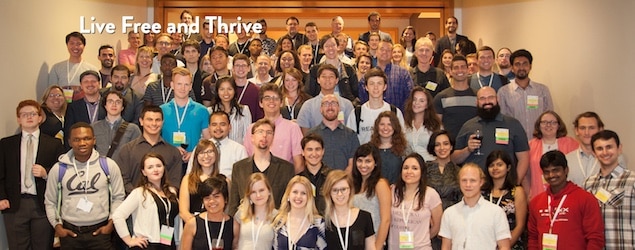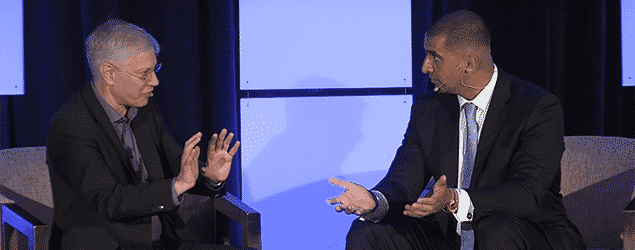2016 Ayn Rand Student Conference: A Preview

It looks like the upcoming 2016 Ayn Rand Student Conference is going to be the largest student Objectivist conference ever. The conference’s theme is free will. But what exactly is free will? Does it even exist? How do you know? What’s the Objectivist perspective? And what implications, if any, does it have for how you live your life?
In a newly published interview in The Undercurrent, ARI’s Chief Content Officer Onkar Ghate offers a glimpse of what he will cover in his talk “Seize the Reins of Your Mind: The Objectivist Theory of Free Will”:
Why talk about free will? How does this issue impact students’ lives on campus and beyond?
There are at least two major, related reasons why free will is important to students’ lives.
First, today we are bombarded with the perspective of determinism: that some combination of external facts, such as your upbringing, education, genetics, culture, and race, determine your fate. Now I don’t think this is true. But against it, it is not enough to say that you have some freedom. . . .
Yaron Brook, Onkar Ghate, Elan Journo and Steve Simpson will also participate on two panels illustrating how ARI’s perspective on various social and political issues such free speech, immigration policy and foreign policy stem from our view of free will.
At another panel, Simpson will join Jason D. Hill, professor of philosophy at DePaul University, and Nico Perrino, director of communications at the Foundation for Individual Rights in Education, to discuss whether “safe spaces” and “trigger warnings” belong on college campuses. Simpson gave a preview of his comments in a recent interview with The Undercurrent:
How does free speech relate to the topic of the conference, free will?
Free will is fundamental to human reason. It’s an aspect of how reason functions. We have the ability to choose our thoughts and our actions, and in order to think we must constantly focus our minds and make choices. Speaking essentially means speaking our minds, so it, too, is a matter of choice. But if you hold the view that people lack free will, then both thinking and speaking are simply automatic processes. They don’t lead to knowledge or communicate knowledge, and the individual’s choices in either case are irrelevant. People, under this view, are essentially driven by instinct or emotion, so freedom of thought is an illusion and freedom of speech a kind of game or a struggle for power, which is how a lot of intellectuals view it these days. If that’s true, why care whether people are free to say what they want?
Gena Gorlin, a research and clinical postdoctoral fellow at the Center for Anxiety and Related Disorders of Boston University, and a graduate of ARI’s four-year Objectivist Academic Center program, will discuss what we can learn from contemporary psychology in our pursuit of happiness. In this Undercurrent interview, she offers a preview of what she will be covering in her talk “Taking Responsibility for Your Happiness: Insights from Contemporary Psychology”:
Why talk about happiness and psychology? How does this apply to students’ lives on campus, and why should they care?
It isn’t obvious or automatic to know how to choose your goals or values. I’ve worked with a lot of college students and college is a really pivotal time to decide how things will go. Of course, you never reach a time when you can’t turn your life around, but college is your window of opportunity to get started in the right direction because it’s your first time autonomous from your parents, deciding what classes to take, how late to stay out, who to live with, etc. You’re so free to explore and try different majors and styles of thinking and ways of life.
As this wide selection of talks and panels make clear, the issue of free will has far-reaching implications, and so enables ARI to show the power and relevance of Objectivism. The conference is also a great opportunity for ARI to connect with sincere and serious students who are interested in ideas, searching for answers and concerned with deeper philosophical questions about life and existence.
For more news on ARI’s fight for a rational culture, subscribe to Impact Weekly.



